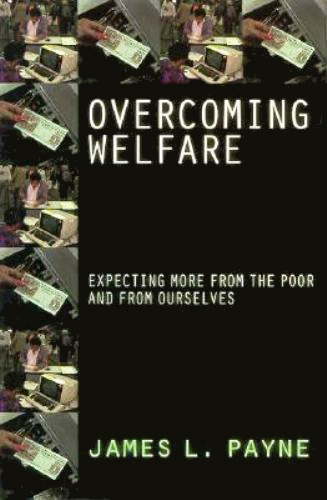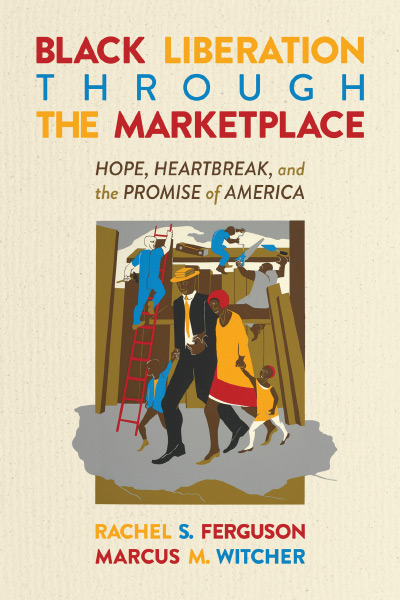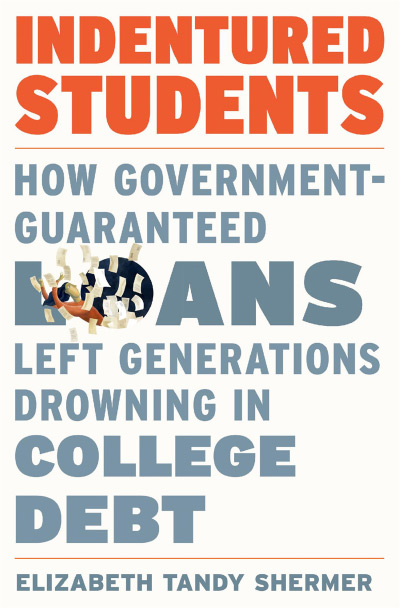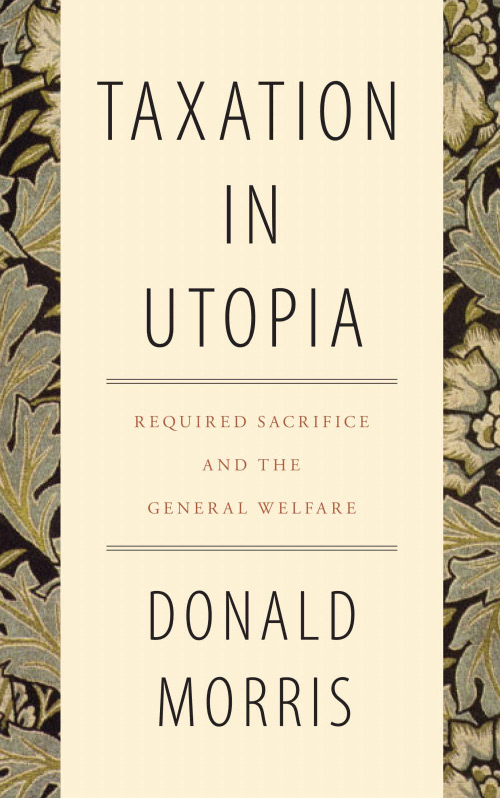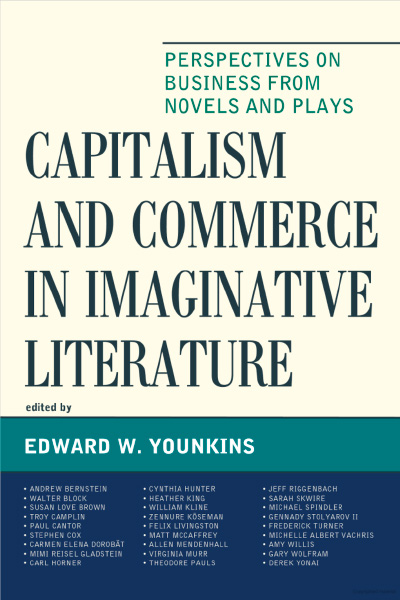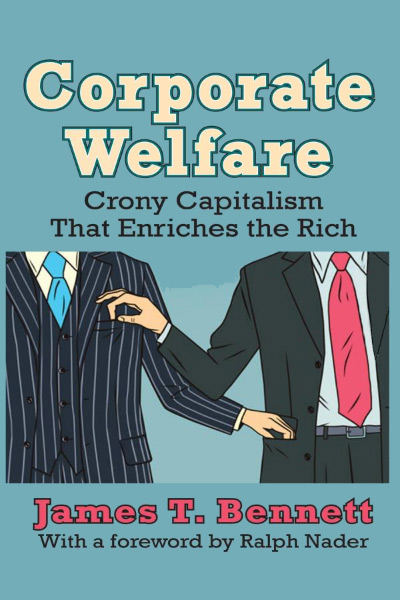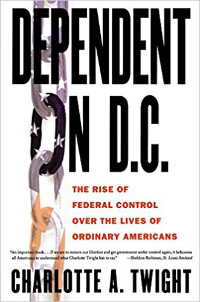Overcoming Welfare, the title of James L. Payne’s new book, is as provocative as the change he wants America to undergo. The idea of “overcoming” is powerful. For some, “overcoming” evokes images of a Nietzschean desire to invent a higher self. For others, the images of “overcoming” are associated with life’s little vices, no less salacious: overeating, drug-inhaling, thumb-sucking, porno-watching, unhealthy dependencies. Payne wants Americans to “overcome” welfare, to get over life’s little vices in the service of a higher, virtuous self.
That America has a miserable record after four hundred years of public assistance is hardly the lament of conservatives alone; the idea has broad support among scholars in the field, from Frances Fox Piven to Gertrude Himmelfarb. Payne’s optimistic vision is old but admirable. He wants to replace welfare with a more economically productive, democratically participatory, flexible, voluntaristic, and spiritually uplifting alternative. He suggests that the alternative is exemplified in America’s past, in the Charity Organization Movement of the late nineteenth century. Unfortunately, however, Payne’s scholarship on that period betrays his vision. The book is slave to a naive and utopian behaviorism (pp. 5, 11, 28, 191, 193); it manifests a will to see acts of True Charity and Independence in the briefest of voluntary encounters (pp. 25–26, 194, 199). The book ignores the quantitative evidence (throughout). Overcoming Welfare has its share of little vices, too.
In an earlier age, it seems, one had to pay dearly—lose the lungs, the liver, or a youthful skin—to publish just one book on poverty and welfare. James Agee did, that he might honestly convey what he had experienced in Let Us Now Praise Famous Men (1939). Michael Harrington did, in his exposition of The Other America (1962). Josephine Shaw Lowell did, preparing for her slender book, Public Relief and Private Charity (1884). Think of W. E. B. Du Bois, writing from vast firsthand observation The Philadelphia Negro (1899), and Gunnar Myrdal, displaying in hair-raising detail the facts of An American Dilemma (1944). Think of the volumes of Charles Booth and Henry Mayhew on the laboring poor of London. These are big, important books; they still give shape to the scholarship on poverty, charity, race, and welfare. The private hell of an Agee is not something most would take for his own; not for the sake of a book. And it is difficult to imagine a scholar in the Age of Temp-Work making the time of a Charles Booth (who, by the way, kept his day job). What is clear is that the intellectual dividends of those painfully constructed books, Lowell to Harrington, keep raining in.
Nowadays a book on welfare can be produced quickly and at low opportunity cost. The modern book on welfare is pasted with little stories of unchecked desire, fraud, deception, and lives gone wrong. It is sprinkled with sage-sounding advice about America’s alternatives to the scrap heap of the welfare state. Agee’s advice, if ever he dared to give it, came in poems and thick descriptions, rushing toward us like a tidal wave to the dam of our ordinary senses, bearing gifts of experience worthy of a Blake or a Nietzsche. The new advice skips along in conveniently numbered lists (pp. 40–41), as in Marvin Olasky’s “seven marks of compassion,” the rhetorical facsimile of Cosmo’s “seven ways to be in fashion.” The contemporary book is Harlequin history for the policy lovelorn: one-dimensional characters, simple and linear plot lines, unintended negative consequences that everyone but the characters of the story can anticipate.
Unfortunately, Payne’s Overcoming Welfare exemplifies the Harlequin-history style. Readers will be wise to be skeptical of its arguments. But like the other kind of romance, Overcoming Welfare will get a certain crowd hooked.
The heart of the book is in the right place: Payne wants America to overcome its impulsive acts of charity, which he claims have had mostly bad effects on productivity and character. (He exaggerates; see R. Moffitt, “Incentive Effects of the U.S. Welfare System: A Review,” Journal of Economic Literature 30 [March 1992].) Payne wants to scrap almsgiving and revive “expectant giving.” I scratch your back and you scratch mine. According to Payne, the middle classes should do more than teach the poor to fish. If you give a fish or if you teach someone to fish, you should demand something back. As Payne puts it, “By this standard, the best aid program is not the one that gives away the most to the needy, but the one that is successful in eliciting the greatest contribution from them” (xii). This idea is of course a good one; the beneficiaries of charity ought to give something back to the world. (What is constantly and systematically stolen from the industrious poor is not the subject of Payne’s book.) It’s just that Payne’s main argument, an attempt at a historically based argument, is so wildly speculative and overstated, so sparingly, misleadingly, and in important ways erroneously documented, that the body of the book floats limp, eyes up.
Payne acknowledges that the “expectant giving” he endorses has deep roots in nineteenth-century Britain and United States. It is the stuff of poor farms and workhouses, industrial schools and “friendly visiting.” The chief failure of the book is that Payne locates the successes of expectant giving in the Charity Organization Movement. But instead of drawing on the new scholarship about “charity organization,” instead of examining the actual record of practice, instead of listening to the charity organizers near the breakup of their movement, Payne, like Olasky before him, mistakes the history of ideas for the history of outcomes. He confuses the ideals of charity reformers with what actually happened. (For a bibliography of the growing literature, see my “Kicking the Malthusian Vice,” Quarterly Review of Economics and Finance 37 [Summer 1997].) Although the new social and economic histories are not in agreement about all the consequences of charity organization, one thing is clear: the practices of the nineteenth century offer no panacea for dependence. The nineteenth century offers no scheme for the alleviation of poverty, not while simultaneously waging a war on dependence.
Readers who look for “thick description” will not find it here. Payne’s characters are one-dimensional. The recipients of AFDC are portrayed as “dependent,” a status that for Payne is something like “useless” (p. 200). (Yet the econometric evidence shows that during the high tide of AFDC only 5 to 10 percent of its recipients could be described as long-term.) Lacking intimacy with the stacks of quantitative evidence, Payne says without doubt or measure: “Increased wealth increases the flow of handouts, which lure the needy into dependent and dysfunctional lifestyles” (p. 11). Social workers are portrayed as being “non-judgmental” (p. 105) about the morals of the poor with whom they work. Payne writes, “Today’s social workers have genuinely internalized a value-free approach” (p. 106). (When I was a welfare caseworker in Indianapolis, I was struck by the willingness to judge. Contrary to Payne’s assertions, and despite the advice proffered in instruction manuals, social workers judged openly.) Like the dime novels it simulates, Overcoming Welfare constructs a fiction of “the volunteer” as “mentor” (p. 19), the opposite of the value-free social worker. This imagined volunteer-mentor is “uplifting” (p. 194), “comforting” (p. 194), and “moral,” with “healthy values” for “teaching” the “dependent” (chaps. 11–12). Expectant giving, Payne says in parable, is good for the labor pool, and it trims the fat off selfish giving. As history, however, Payne’s story is too kitsch for words.
Payne’s one-dimensional characters sit easily with a simple and linear plot line, a literary trick that Payne indulges as he explains “what many sense about government welfare programs: they tend to be harmful giveaway programs. Most nineteenth-century charity theorists noticed the connection and condemned government welfare programs. We could have learned from them had we but listened” (p. 83). The unintended negative consequences of the “giveaway programs” are seen by the author and the reader but not by the relevant actors in the story: we vote-buying politicians, we feel-good philanthropists, we dysfunctional, gift-addicted poor, and we value-free social workers don’t see the harm well enough to do anything about it. Not for the last hundred years. The urgent pathos of his rhetoric is appealing; it is the Harlequin hook. But add one more dimension to Payne’s characters and the flame of his argument fizzles.
Consider that his heroes of the nineteenth century, the reformer Josephine Shaw Lowell and the economist Edward T. Devine, were by the early twentieth century persuaded that their voluntary charity of the character-building type was no longer suitable for the American economy. Consider that Lowell was a leader in the movement for state welfare bureaucracies, worker safety, and consumers’ rights; consider that Lowell and other leaders of the Charity Organization Society (COS) initiated public works projects during the depression of 1893. Consider that in most cities the COS gave “sympathetic” aid. Consider that the idea of “friendly visiting,” Octavia Hill’s model for what Payne calls a “mentoring” philosophy, was in most cities merely a blueprint. In Indianapolis the Society for Friendly Visitors was so bereft of volunteers and so arrested by the way the poor broke stereotypes that the meetings became coffee klatches for middling housewives. When a “friendly visitor” did make contact with a poor family, the exchanges were too brief for any real mentoring. The modal range of exchange ran from Nurse Ratched to Mr. Bumble; from antiseptic to openly hostile.
In versions, Payne shares a vision with distinguished observers of welfare going back to the first Elizabeth and before. Unfortunately, Overcoming Welfare does not use history to improve our understanding of the connection between personal relationships and “moral uplift”; it does not strengthen one’s beliefs in the voluntaristic principles of an earlier generation; it does not offer a scheme for the alleviation of poverty; and it writes no redeeming parables for broken community or fragile self-esteem. The ideas of Overcoming Welfare are too speculative, the writing too painless, for any of that.
| Other Independent Review articles by Stephen T. Ziliak | |
| Spring 2002 | Fighting Poverty with Virtue: Moral Reform and America’s Urban Poor, 1825-2000 |
| Spring 1996 | The End of Welfare and the Contradiction of Compassion |


